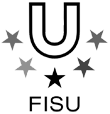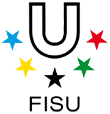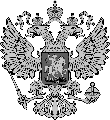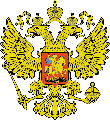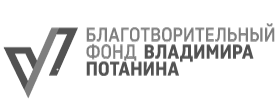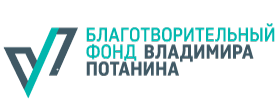Nelli Verkhovenko
Nelli Verkhovenko:
"Para ice hockey is a truly spectacular sport, no less exciting than ‘classical’ ice hockey. Many have not even heard about sledge hockey, but when I tell people about it or invite journalists, friends and colleagues to the training sessions, they get so much positive energy and excitement!"
While studying at RIOU, Nelli did a thesis project on adaptive sport for youth and promotion of youth sledge hockey, in particular. After completing the course she returned to St. Petersburg and started to apply her research to the real world. Very shortly, on October 6, 2017, the city’s first youth sledge hockey team Aurora was created as part of the St. Petersburg sledge hockey club.
‘From the age of 12 I was fully immersed in the world of sport doing athletics professionally. I won various medals at Russian and international competitions but I had to complete my competing career because of an injury. After finishing secondary school, I enrolled in the Department of Adaptive Physical Education of the National State University of Physical Education, Sport and Health, and that’s when I learned about Paralympic sports. The curriculum was very rich, so apart from studying general and specialised courses we attended various sporting events and took part in conferences and forums’.
‘While doing my Masters course I got the idea of going to the Sochi 2014 Paralympic Games – not as a volunteer but as a spectator. I was keen to immerse myself in the atmosphere of the Games and become part of this major global event. Everything worked the way I planned it, so I went to Sochi and the first Paralympic event I attended was a ski race at the Laura biathlon and ski complex in which the Russian Paralympians took the whole podium. I couldn’t have got more adrenaline and felt happier and prouder than I did thanks to those heroic athletes. The second event I attended was para ice hockey. Support from fans in the grandstands was enormous because what the players were doing on the ice seemed next to impossible. The following day I went to Rosa Khutor to see the giant slalom events, and that was a fascinating spectacle. It all started with competitions for visually impaired athletes and their guides, and after them came Paralympians with hearing impairments and physical disabilities . Some of the skiers fell hurting themselves badly, and the spectators held their breath waiting for information about their condition. We regarded those athletes as true heroes whose colossal will power and courage could make the mountains split apart making way for them’.
‘With all these positive emotions and energy, I went back to St. Petersburg to complete my masters’ course. After working as an athletics coach for some time, I realised that there was something lacking in my life – I had to develop and move on. By a fortunate coincidence, I came across RIOU’s website and saw the invitation to apply for the next year’s intake, so I decided to take part in the competition to get a study grant. And I was lucky again – I won a grant from the Russian Ministry of Sport!’
‘This opened a new page in my professional development. The year at RIOU was extremely fruitful, rich and exciting. Studying was really interesting, though at first I found it difficult to grapple with the complexities of sports management, which was a completely new field to me. At the same time, it was a totally different perspective – looking at sport not from the position of a competing athlete, but from that of an organiser and manager. During my studies I was involved in many large-scale events working with the Organising Committees of the 3rd World Military Games, Formula 1 Russian Grand Prix 2017, Night Hockey League 2017, and FIGHT NIGHTS GLOBAL’.
‘The idea to choose Paralympic sport as the topic of my final research project came during the induction week and meetings with the course professors. Before the start of lectures on Paralympic Games and adaptive sport I had already discussed the concept of my thesis with professor Yevgeny Bukharov and decided to focus on adaptive sport for children – youth para ice hockey, in particular. Sledge hockey is the Paralympic version of ice hockey for people with physical disabilities. Players move on custom-made sledges and use special sticks to push off and handle the puck. Unfortunately, youth adaptive sport receives very little attention in our country, and para ice hockey came to Russia only recently. The first adult team was formed in 2008, and the first youth team appeared just a few years ago. So, as I embarked on my thesis research the idea was born to create a youth sledge hockey team as part of a professional club’.
‘Para ice hockey is completely new to Russians, and there is practically no literature on it apart from a few practical manuals. So, writing the thesis involved extensive analysis of foreign print and online sources. During that period I also went to St. Petersburg to work at some sporting events. There I met Andrei Ivanov, who a year before had created the city’s first sledge hockey team and set up the St. Petersburg sledge hockey club. Over the year of its existence, St. Petersburg had won a friendly match against Finland and made its debut at the first round of the Russian championship achieving the 6th place’.
‘After graduation from RIOU I returned to St. Petersburg and started to apply my thesis research to the real world. On the 6th of October 2017 the city’s first youth sledge hockey team Aurora was created as part of the St. Petersburg sledge hockey club. Aurora pursues two main areas of activities: sports training for children with wide-ranging physical disabilities and rehabilitation for children with cerebral palsy. Currently the team comprises 10 children aged between 9 and 14, and the number of children wishing to do sledge hockey is steadily growing. It is a unique community oriented project as the children not only do sports but also attend various events together – matches involving HC SKA and other sports events and celebrations. Over just a few months, the kids have become a solid team and built close bonds. Ice hockey has opened up a whole new world to them, and they get so much joy and happiness from the training sessions’.
Now I am actively involved in the promotion of both adult and youth sledge hockey teams, take part in conferences and forums, look for sponsors and partners who can support the development of sledge hockey in St. Petersburg. There are a lot of challenges that have to be gradually met to achieve the final goal. And the final goal is to promote sledge hockey, create favourable conditions for disabled people to do hockey, and change attitudes to people with disabilities. We have just embarked on this work, and already there are people who are willing to help us with. For example, we have found a coach who trains the adult team free of charge.
‘Para ice hockey is a truly spectacular sport, no less exciting than ‘classical’ ice hockey. Many have not even heard about sledge hockey, but when I tell people about it or invite journalists, friends and colleagues to the training sessions, they get so much positive energy and excitement! These athletes are very special - charged with optimism and kind feelings despite the challenges they have gone through in their lives’.
‘Sledge hockey is not just another sport. It’s a world of opportunities for people with disabilities. I am convinced that St. Petersburg – a city with rich hockey history – must also develop sledge hockey. And I will do my best to make it happen!’























































